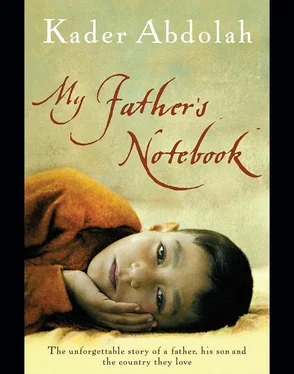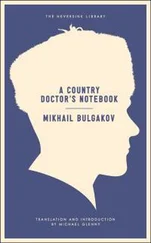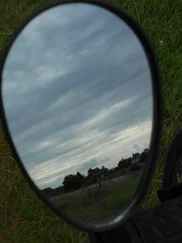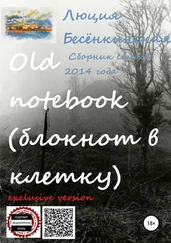Here, in the silence of the polder, I’d like to utter her name, to shout it out loud, but I can’t, because I don’t know it. Someone in Saffron Village once told me that she was the daughter of a Russian immigrant and that she lived in a mountain village near the border of the former Soviet Union. Though I’d never met her or officially known of her existence, she and I had a tacit agreement.
She did a lot to help the party. She frequently crossed the border with clandestine packages. And she sheltered a number of important party members and smuggled them across the border at night.
I know she did it for my father. However, now that I’m able to look back at events more objectively, I’ve sensed, or rather realised, that to some extent she also did it for me — the son of the man she loved.
I think she also came to Golden Bell’s rescue.
Is she the one who sent me my father’s notebook? There was no return address on the package. No letter, either. Not a word.
What’s her name?
Since she exists only in my memory, I suppose I can call her whatever I like. But what name should I give her? A Persian name? A Russian name? No, she already has a Persian or a Russian name. A Dutch name? I’ll give her a temporary name. Hannah, for example. Aunt Hannah. Tonight, when it’s dark, I’ll go stand on the dyke, look out at the inky sea, and call her name: Hannah! Aunt H-a-a-n-nah!
I must call to her, otherwise this story will grind to a halt and the book will lose its momentum. That’s all. I’m not going to say another word about Hannah.
And now my father and I are going to go to the bathhouse.
• • •
Whenever my father came back from the mountains after a long absence, Tina refused to let him in. She used to hand me a towel and a bar of soap and say, “Scrub him!”
Did Tina know about Hannah? I’m sure she did, though she never said a word about it to us.
My father knew he wouldn’t be allowed in, so he always came back just before sunrise, when he and I could go to the bathhouse together. Since Tina wanted me to make sure he didn’t bring back any diseases from the mountains, I used to get into the shower with him.
“Wash between your buttocks!” I signed.
He did.
“Turn around.”
He turned around and I checked his body for lesions or rashes.
“Bend your head!”
He bent his head and I checked his grey hair for lice.
“OK, it’s fine, you’re clean.”
Then I tied a towel around him and went into the prayer room.
Together with the other men, we faced Mecca and prayed. At the end, we turned around and, following a long tradition, greeted the person behind us. I always sat behind my father, so when he turned and put out his hand, I’d shake it and say, “May your prayers be answered.”
But this time, when he turned to greet me, I wasn’t there. I was standing beside the pillar in the bathhouse, watching the people pray.
“Why aren’t you praying?” he signed.
It wasn’t the first time I hadn’t joined in the prayers. I’d stopped a long time ago. It had all started after I’d met Dr Pur Bahlul. He didn’t pray, either.
I didn’t answer my father’s question.
He asked me again on the way home. “Why didn’t you pray?” I told him I’d explain later. I didn’t feel like discussing God. I’d learned a lot from the books Dr Pur Bahlul had given me to read.
Late that night my father came to my room. He didn’t say anything, but I saw the question burning in his eyes.
“Isn’t it past your bedtime?” I signed.
“I can’t sleep,” he answered.
He looked at my new books, the ones I’d been reading while he was away. My bookcase contained several books that used to belong to Dr Pur Bahlul, but were now mine. He ran his fingers along the spines, as if he were checking out the titles.
“Sit down,” I signed.
He sat back on his heels on the carpet. I sat down across from him.
“You asked me why I didn’t say my prayers,” I began. “But first tell me why you pray.”
“What?”
“I said, Why do you pray? Why do you bow? Why do you touch your forehead to the ground?”
“Heaven,” he pointed upward. “I do it because of Heaven.”
“Heaven? What’s in Heaven?”
“The Holy One,” he signed.
“Which holy one? Tell me which one you mean.”
He smiled, seemingly at a loss, and rested his hands on his knees. The discussion appeared to be at an end. Then he suddenly made his move, a counter-attack: “The Holy Book comes from Heaven. It was written by the great Holy One who lives up above. So there must be a Holy One in Heaven.”
I shook my head. “The Koran doesn’t come from Heaven. It’s a book — a good book — but it has nothing to do with Heaven.”
“Yes, it does. Kazem Khan told me so. And so did you, Mine, The Boy Who Crawls Under the Blankets and Reads. You yourself kissed the cover of the book and washed your hands before you read it.”
“You’re right. I used to touch my forehead to the ground. Then I read these books and found out about other things, and they … wait a minute, let me start at the beginning.”
I got up and hunted around for a book on outer space, one with lots of pictures of stars.
“Look at this picture. Can you tell me what it is or what it’s about?”
No, of course he didn’t know what it was. All he could see was a milky stripe, a trail, a path through the night.
“Come look!”
I opened the window. It was a dark blue night. Millions of stars were shining and the Milky Way was clearer than ever.
“It’s a picture of this,” I signed.
I wanted to tell him that in the beginning there was nothing and then suddenly there was a big bang, and after that everything was set in motion, everything started to move, just like the Milky Way, which consisted of lots and lots of stars and was still in motion. I did my best. I tried to tell him, in our simple sign language, all that I had learned. But he stared at me in perplexed silence, thinking, what on earth is he talking about?
In sheer desperation, I switched to something else, suddenly surprising him with a bit of everyday reality: “Did you know that the earth moves?”
“What?”
I gestured towards the stars, collected all those stars in my left hand, added the river that ran through our town, threw in the mountains for good measure, placed my father on top, squeezed them all together into a ball and then transferred that ball of matter to my right hand. I held it up in front of his eyes and suddenly let it explode: “B-o-o-o-m! Stars, stars, more stars, then the sun, then the earth, then the moon and then my father and then me … do you understand what I’m saying?”
No, he didn’t understand. I didn’t, either.
I took out a map of the world and tried to explain to him where we were on it. “Here, we’re located here, on this little spot on the earth, and the earth is located here in the sky … Look, now I’m drawing the earth and the sun. We, you and I, are located here, but we can’t see the sun. No light. Night.”
I’d wandered far away, so far away that I could no longer connect these theories with my “not praying”. I stopped.
“It’s late, go to bed,” I signed.
He left.
But later I noticed that he was still thinking about it. Sometimes, when he was in the right mood, he’d joke about it with Golden Bell. He’d pluck the stars from the sky, squeeze them into a ball, hold them up in front of her and shout “b-o-o-o-m!” Then he’d roar with laughter. Another time he saw me standing with a group of old men. He stamped his feet on the ground and signed, “The earth is round. And it revolves. You and me, us, we all revolve around the sun. And Ishmael has stopped praying.”
Читать дальше












